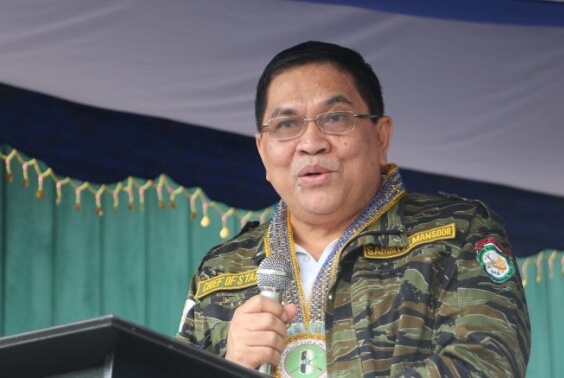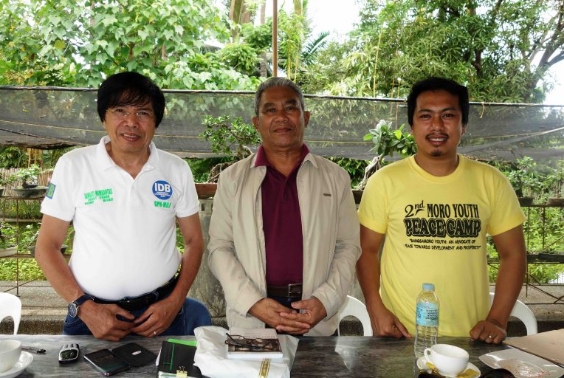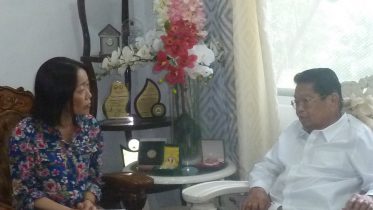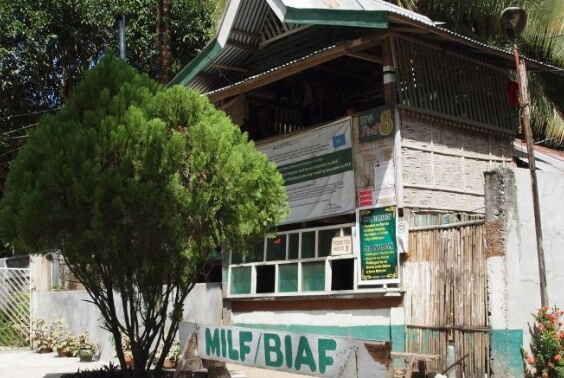- SOUTHERN PHILIPPINES
From Bullets to Ballots in Bangsamoro: Toward a Political Party System and the Role of demokraXXIa

Introduction:
The situation in Mindanao had always been intractable for the Philippines’ colonial administrators and much later for succeeding governments of the Philippines. The drive to integrate it into the larger political body has been met with intransigence, borne out of a deeply rooted faith that united its different clans and tribes. This unity, while fractious at times, served to define a nation, which, in the late 1960s and early 1970s, gave vent to a movement to establish their own country. Collectively they would call themselves the Bangsamoro people.
The revolution that began in 1973 and led by the Moro National Liberation Front (MNLF) under Prof. Nur Misuari manifested the desire to have a state of their own, which would reflect their own culture. The war that took place in the ensuing years claimed tens of thousands of lives and displaced entire communities. It also exacerbated the tensions brought about by the conflicting customs and mores of Christian settlers and the Muslim communities of Mindanao.
Such was the extent of the bloodshed that the Martial Law regime of President Ferdinand Marcos was accused of instances of genocide. The revolution in Mindanao as well as a concurrent communist insurgency generated enough pressure on Manila to be open to initiatives by international groups for a negotiated peaceful solution to the conflict. Thus, the Organization of Islamic Countries (OIC) was able to sponsor negotiations between the Philippine government and the MNLF in Tripoli, Libya. This led to the Tripoli Agreement between both parties signed and formalized on December 23, 1976.
The consequent actions of the Marcos government to implement the agreement as per their interpretation met with strong resistance from the revolutionary movement, now divided into factions, the MNLF under Misuari, the Moro Islamic Liberation Front (MILF) led by Hashim Salamat and the MNLF-Reformist of Dimas Pundatu. Such actions convinced the different factions of the insincerity of the Philippine government, and hostilities resumed soon after, although by this time the Marcos government’s efforts to persuade other revolutionaries met with positive results as cracks in the movement appeared with the surrender of a number of its top commanders.
When Marcos was toppled in a popular revolt, Corazon Aquino, the widow of the slain martyr Benigno Aquino, took over as President of the republic. Early in her term she met with Misuari to pursue further the talks for peace. Even as the talks failed her government sought to institutionalize agreements already made by providing for the creation of the Autonomous Region of Mindanao (ARMM) in the 1987 Constitution. A Regional Consultative Council was formed and tasked to draw up the Organic Act, which would serve as the manual of operations of the ARMM. The plebiscite was conducted in the proposed area of the ARMM. This was to have been composed of thirteen provinces but only four—Maguindanao, Lanao del Sur, Sulu and Tawi-Tawi—joined the ARMM.
The first set of ARMM officials were elected on February 1990 but because of electoral protests they were only able to assume office in July of that year. The first Regional Governor of the ARMM was Zacarias Candao.
Even as the ARMM exercised its administrative functions, it was seen as adjunct of the Manila government because it was financially dependent on the national budget to undertake its activities. This situation was not helped when, finally, Nur Misuari assumed the governorship of the ARMM. In fact, his assumption to office unmasked the deficiencies of the structure, but he himself was also part of the problem. As governor Misuari also revealed weakness, as he was unable to rise above his own clan interest to administer to the needs of all the Moro people.
At about this time the MILF was making its presence felt. Better organized and for the most part non-dependent on outside support, it was able to build a credible armed force capable of defending its territory. In the latter part of the Ramos administration it would start to flex its muscles carrying into the Estrada administration. Joseph Estrada wasted no time in responding in kind and was able to wrest control of some of the MILF camps. Unfortunately, while Estrada gained popular support, especially from his constituency, his move produced a new force now in guerrilla mode. He got some of the camps but was unable to diminish the strength and resolve of the MILF.
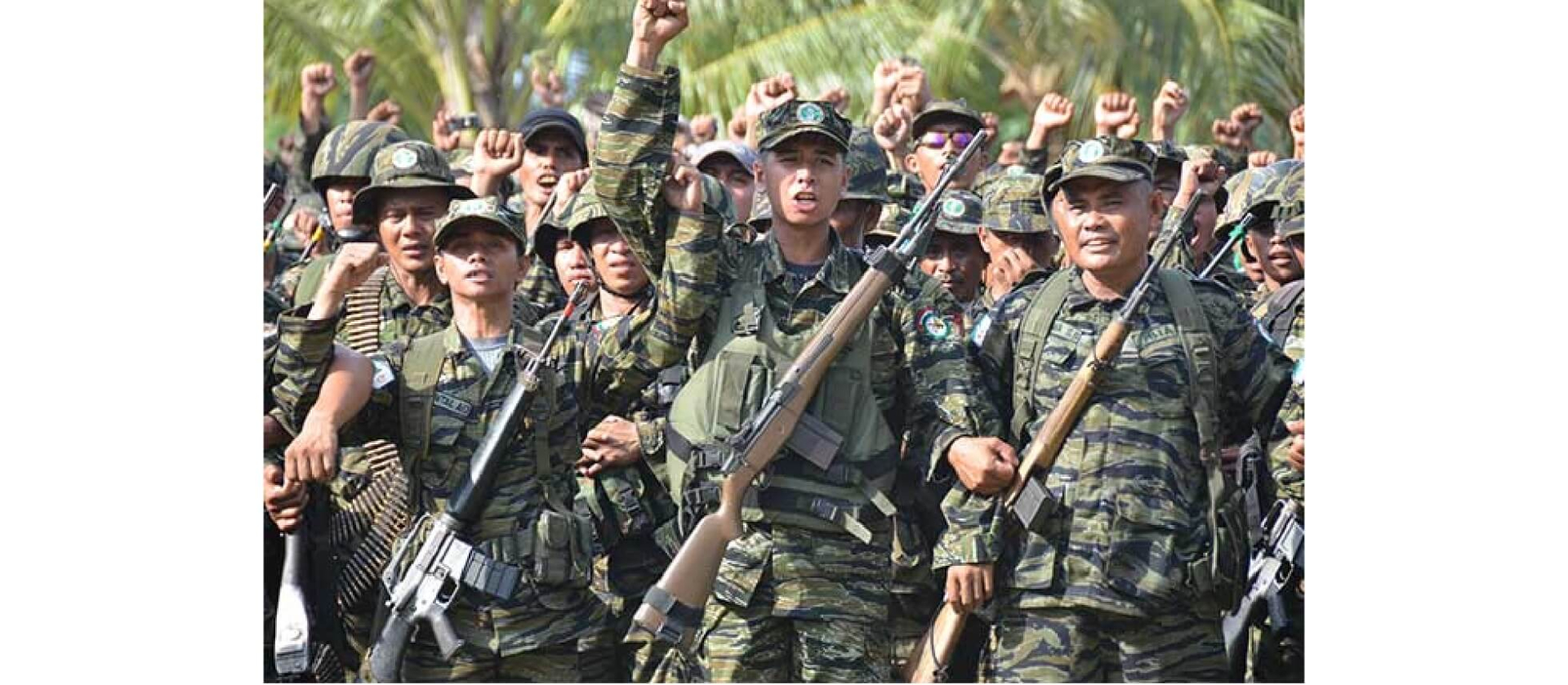
Talks with the MILF started, still under the auspices of the OIC, in the term of Gloria Macapagal-Arroyo. This time, a third party, Malaysia, was invited to help spur on the talks. Talks were held in Kuala Lumpur.
These talks were continued under President Benigno Simeon “Noynoy” Aquino III as part of his overall peace initiative. Under this initiative, the government would pursue several peace tables. The most active of these is the MILF. Two others (the talks with the CPP-NDF-NPA and the MNLF) were also a carryover. The others were for closure agreements.
The talks with the MILF regained new interest as the MILF declared that it was not seeking to secede from the republic but wanted to explore arrangements that would enable it to govern more effectively. This sincerity of the Aquino government was marked with a personal meeting of President Aquino with MILF Chairman Murad Ibrahim. This was followed by a document entitled “Decision Points on Principles” which was the roadmap towards the historic Framework Agreement on the Bangsamoro. The Framework Agreement on the Bangsamoro was signed on October 2012 between representatives of the Philippine government and the MILF as witnessed by other stakeholders for Mindanao peace including Malaysia, the third party.
The talks continue. Being ironed out are agreements on the four annexes of the Framework Agreement that would define the nature of the new Bangsamoro region. Already, there have been agreements on three annexes, including those on power-sharing and wealth-sharing. The annex on normalization is the last of the agreements being worked out. These would lay the ground for the Transition Council to craft the basic law on the Bangsamoro.
While this is still work in progress, the Bangsamoro civil society, the MILF and other factions of the MNLF are gearing toward a transition to the political stage to contest for governance. There are now various initiatives on the ground to assist them to make the shift towards being actors in a political platform.
Initiatives for Developing a Political Party System
The October 2012 Framework Agreement on the Bangsamoro opened up yet another opportunity and hope to resolve the long-running conflict in Southern Philippines. Given this, now at work are three separate but complementary initiatives to contribute in the development of a healthy political party system in the Bangsamoro via Strengthening the Party System for the Ministerial Form of Governance in Bangsamoro, an eight-month project of the Asia Foundation in cooperation with the UK Embassy. This sums up what this initiative hopes to achieve, “[t]his hopeful beginning will not be sustainable unless the agreement delivers actual improvements in politics and governance in the Bangsamoro. A key factor will be how the MILF and other groups transition from armed struggle to democratic governance. The experiences of other post-conflict countries suggest that this transition typically is fraught with challenges. Moreover, politics in the areas of the Bangsamoro, traditionally dominated by clans and warlords have been highly undemocratic and prone to generating conflict.”
demokraXXIa Initiative
These challenges all the more inspire peace-loving groups to lend a hand in the process of political rebuilding. demokraXXIa, an organization of progressive democrats aiming to deepen the practice of democracy in the Philippines, believes that a new political party system emerging in the Bangsamoro region is not only feasible but also an indispensable and integral component of an ensuing autonomous government in the Bangsamoro lands. We at demokraXXIa approach this goal from two prongs: guidance in the development of a political party system development and inputs to the writing of the Bangsamoro Basic Law. Both are independent but integral components. We organize seminars which produce inputs for the Bangsamoro Basic Law, while the latter provides the perspective for the orientation part.
—Political Party System Development
The two seminars thus far conducted involving the Moro Islamic Liberation Front (MILF), Moro National Liberation Front (MNLF) and other politically-oriented civil society organizations are not without headways in terms of developing a new mindset about political parties and electoral mode of engagement. One MNLF leader of four decades admitted he has been fighting throughout this period and now longs to see the fruits of his sacrifices; not that he is aging and weary, but rather hopeful he would see comprehensive development in the Bangsamoro region kicking in. Mr. Sammy Almansoor, MILF chief of staff, openly conveyed his group’s readiness to transition ‘from bullets to ballots’, and opined the ground is ripe for it while the MILF enjoys the confidence of the Bangsamoro people in building a genuine political party. He equated MILF with a clean sheet of paper, where the best may yet be written on it. Intimating that a better future may be secured through a good political party system, he called for the rejection of political dynasties, patronage and personality-based politics in the Philippines.
This effort through the seminars is primarily meant to draw in potential political leaders of the area and get them to discuss the various models in the context of their particular political culture. The series of two-day consultative seminars are designed to elicit the thoughts of the ordinary Bangsamoro as well as spur discussion among them about the political structure and the parties that will play a crucial role in regional governance. This consultative process constitutes the initial step in the direction of creating parties that truly reflect an agenda for governance rooted on stakeholders’ appreciation of the ‘common good’.
The seminar series kicked off by defining the functions of political parties as an organization, to the electorate and in governance. It then zeroed in on the prerequisites for political parties to be able to govern well and promote social reforms, touching on essential elements of good organization and internal democracy. In the course of discussing these issues, we inevitably touched upon the pitfalls in political party development in the Philippines, especially in recent decades.
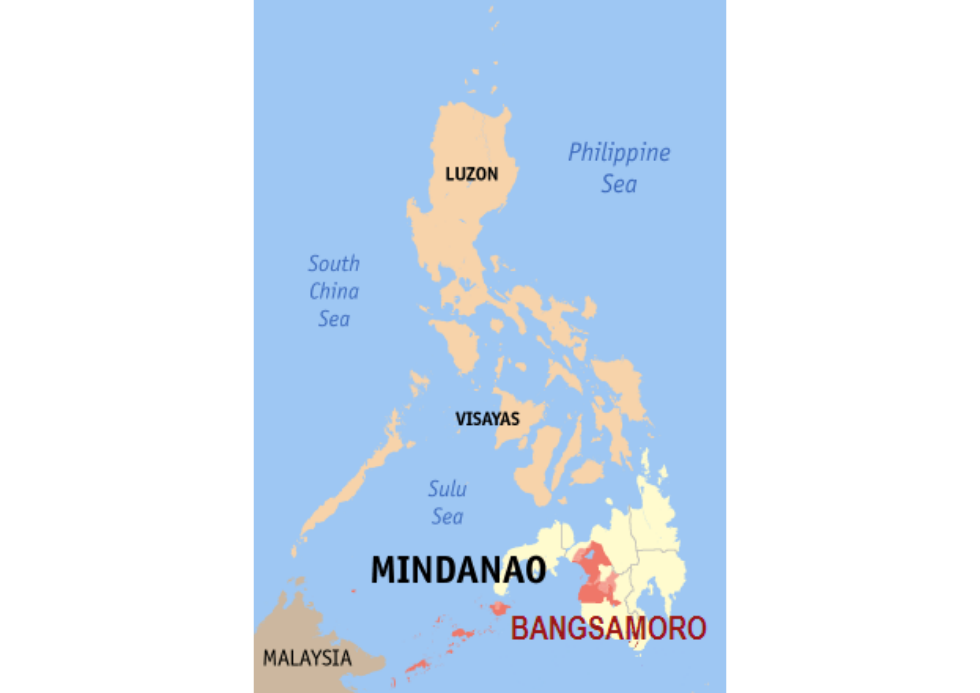
Following these two basic topics, the participants walked through the fundamental principles of (political) platform development and formulation. We placed particular stress on the need for various stakeholders in the region to be engaged in the process. We discussed that stakeholders should include all indigenous groups, sectors, and political groups, engaging even existing political clans like the Mangudadatus and Semas, to ensure that the programs for governance are in consonance with the condition, needs, and the cultural context of different constituencies within the region. A prevalent view among all participants was that the process should not stop with the platform development but extend to efforts in implementation, monitoring, evaluation, and recasting as well as further implementation of projects agreed on in the process of platform formulation. In this integral process, it becomes equally important for constituency-building to accompany the formation of political parties, in order to guarantee that the electorate is tuned in and equipped with skills necessary to effectively participate in governance.
A series of workshops capped the seminar to identify the obstacles and problems to the formation of political parties among the Bangsamoro people and outline appropriate solutions to hurdle and address them. In the planning portion of the workshop initial steps were defined towards the formation of political parties among their ranks.
As intended, the first part of the seminar provided the participants with the critique of the current weaknesses of political party system in the Philippines, introduced governance principles that are differentiated from what they experienced over the years, and determined the institutional infrastructure necessary for political parties to flourish in a different way. The workshops applied this knowledge to the participants’ particular context and reality, encouraging them to creatively think of ways and means to create a political party system different the past and present.
While many participants look forward to the formation of political parties in the Bangsamoro region, some expressed reservation about the post-training scenarios. In recent past efforts of other well-meaning institutions engaged in similar tasks as ours, post-seminar high hopes were often dashed by the absence of interventions to follow-up and follow-through the entire process of party-building. For example, after a series of lectures there were no further assistance to see the participants through their respective party-building efforts. The party-building process aches for more intensive and extensive guidance and engagement from their outside partners.
Over all, the seminars yielded one basic attitude among the participants: a growing collective desire for a peaceful development of the region under a democratic framework of governance.
—Formulation of the Bangsamoro Basic Law
This component is an integral part of the whole process of bringing out the most appropriate and acceptable political party system for Bangsamoro. The discussions that ensued in the seminar serve as inputs in the recommendations to be made for the Bangsamoro Basic Law.
On top of this, the component has two elements: a research surveying the best practices of political (party) systems across the globe, covering both Islamic and non-Islamic states. This gives special focus on those ethnic groups in states that succeeded in their transition from struggle for liberation from oppressive rule within their state towards actual participation, if not rule, in their respective governments. In the drafting of recommended provisions for the Bangsamoro Basic Law, series of consultative activities in various forms are being conducted by demokraXXIa to ensure the broadest participation of political stakeholders in the region. Two focused group discussions yielded rich inputs for the draft. One engaged the civil society groups; the other one, the Bangsamoro youth. Surprisingly, participants in both sessions were unanimous in their critique of the political system prevalent in the region and their vision for an alternative system.
A series of further consultations in the form of roundtable discussions and key informant interviews are still due before a set of recommended provisions will be drafted, after which two layers of consultations would ensue: the first layer constituted by those who participated in the pre-drafting consultative process; the second layer by both relevant representatives from both houses of the Philippine Congress, particularly the appropriate committees in the House of Representatives and Senate tasked to oversee the passage of the Bangsamoro Basic Law.
The final drafting of the Bangsamoro Basic Law is the function of the Transition Council formed through the peace process. The Council is composed of eight representatives from the Government of the Philippines and seven from the MILF. The bulk of the law would concern the political system, which includes the political parties, in the region.
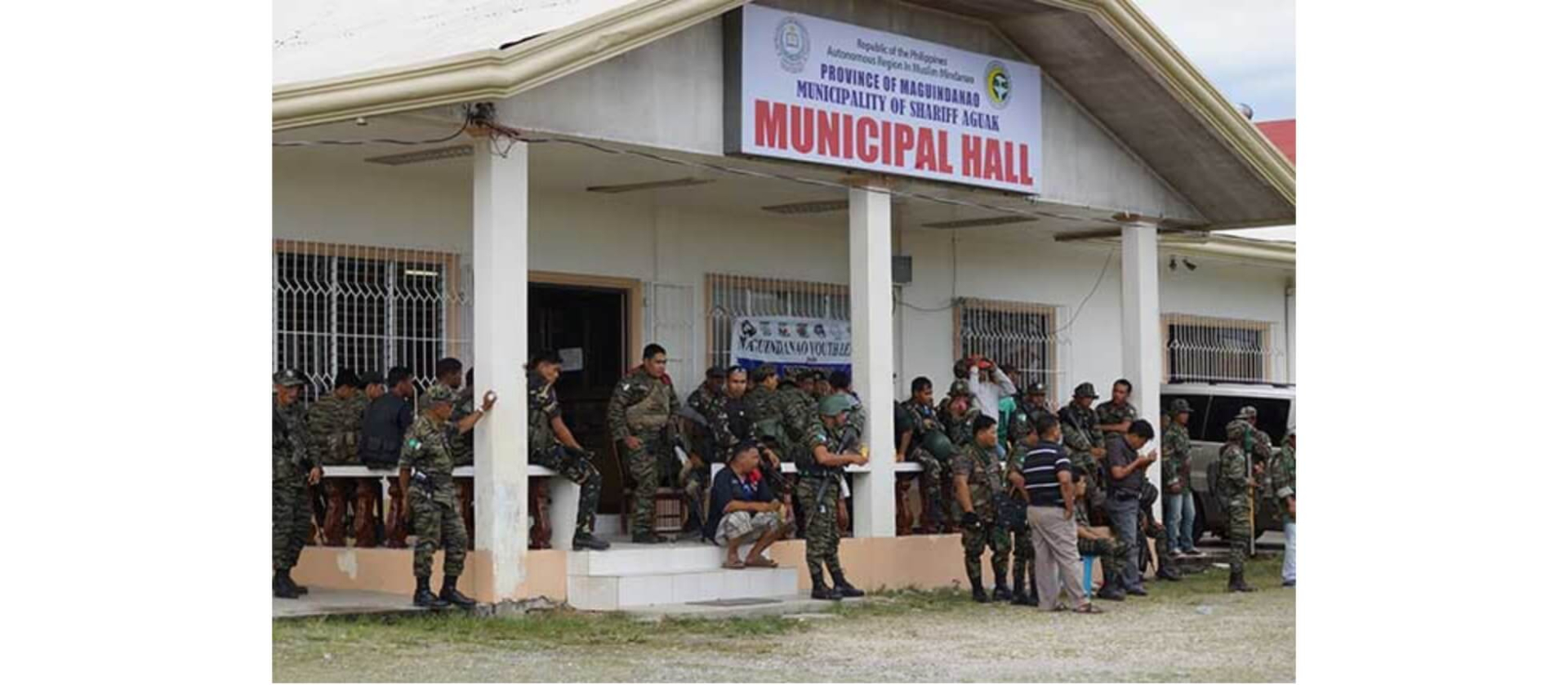
The initiative by demokraXXIa serves to reach the goal of bringing a new political party system in Bangsamoro, which, if successful, may even be viewed as a model for mainstream and other political parties in the Philippines. Dr. Steve Rood, resident representative of The Asia Foundation in the Philippines, intimated as much while capping the seminar held among MILF field leaders. But this is merely the initial step towards that goal. As noted, it could bring about the full flowering of a viable political party system in the region. This would also contribute to the development of the culture that appreciates such a party system among the widest Bangsamoro constituency, if other dimensions of political party system, including issues in governance and electorate engagement, would be covered. However, this culture could only be imbibed if there are enabling initiatives to demonstrate the attendant benefits of a working democratic society, especially to the broad poverty-stricken populations in the Bangsamoro.
For one, communities serving as constituents must be able to define their role through active participation in local governance, different from their long experience of passive engagement where they were mere recipients of dole-outs packaged as services from the politicians. Hence, there is a need for them to engage in viable democracy-enhancing activities, such as livelihood programs for local constituencies, and to hone their capacity to manage these social programs and engage in advocacy activities that artculate their real needs.
On the part of those willing and raring to put up their own political parties, there is a crucial process of transition they must undergo. That is the process of transforming their once revolutionary machineries to a legitimate political and electoral machinery. This is equally challenging, for they would be also venturing into a completely different field of reforming the whole system. Well-entrenched political parties currently engaged in the region may provide relatively little chance for those hopefully emerging political parties to establish themselves. This is why the new law that would be crafted must be able to ensure representation from these potential parties in the political and electoral system that would be enacted for the Bangsamoro in the forthcoming elections in 2016, treating the path to 2016 as a transition period for all political players. This way, past failed experiences of political parties formed in the Bangsamoro would not be repeated and the development of new ones would be encouraged.
The possibilities abound and the future for the political party system in the region is encouraging, with the political stakeholders recognizing the problems they face and becoming one that could think of the alternatives they can pursue within their powers and reach.
Conclusion
John Lennon, a twentieth century popular icon, shortly before his death, once wondered if there are two destinies equally pre-ordained. Destinies are destinies; approaches are approaches. In the Bangsamoro region development, there could be two or more approaches, but the ultimate destiny should be a workable democracy. Political party system in the region is an indispensable and enabling element necessary to make democracy work in the Bangsamoro region, but it can only be realized if there is an environment that enables it. That is one that would allow the transition from patronage and clan-based politics towards a governance performance-based electoral contest when a new political system is put in place. To this end, not only should the political parties and local leaders modernize, but the voting public should also become modern. The biggest challenge is not the recognition of the problem that ails the Bangsamoro region, but the creative and appropriate means to address them.
In this respect, the project Strengthening the Party System for the Ministerial Form of Governance in Bangsamoro is beginning to gain foothold in this direction.





